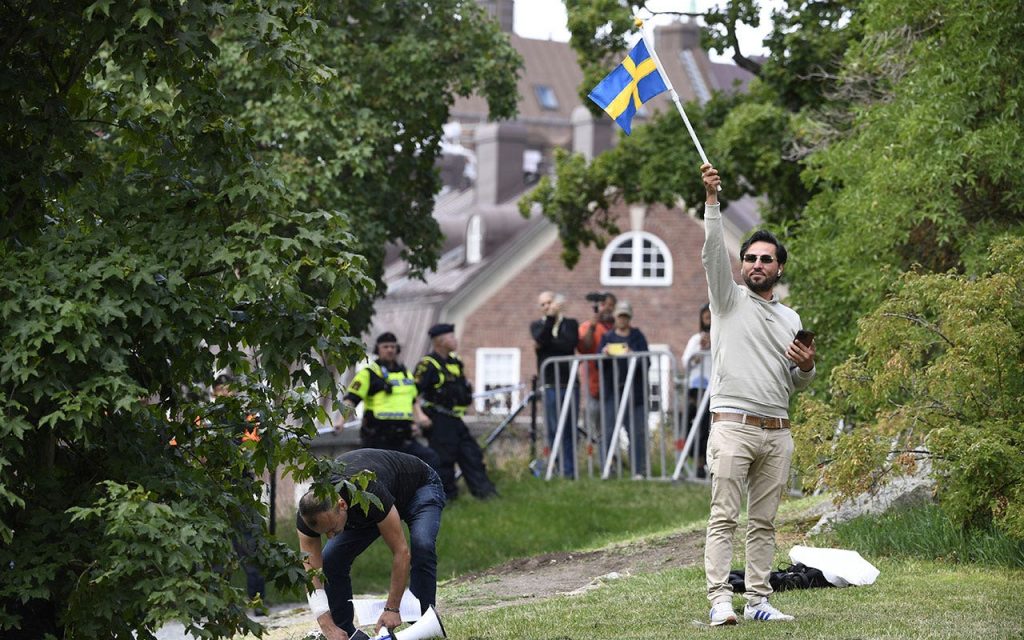Salwan Momika, a 37-year-old Iraqi man known for carrying out Quran burnings in Sweden, has received a deportation order from Swedish authorities. Facing this order, Momika has decided to seek asylum in neighboring Norway. Momika has staged several burnings and desecrations of the sacred book of Islam in Sweden over the past few years. Videos of his actions garnered worldwide attention and sparked anger and criticism in many Muslim nations, leading to riots and unrest in various places. Because of his actions, Momika is currently being investigated by Swedish authorities for incitement against ethnic groups in Sweden.
Momika’s actions have had a significant impact on Sweden’s international relations, notably delaying the country’s NATO membership, which was finalized earlier this month. His actions received wide publicity in NATO member Turkey, leading to the country’s veto of Stockholm’s bid to join the military alliance for an extended period. Sweden’s migration authorities revoked Momika’s residence permit in October, citing incorrect information on his application. As a result, he has been ordered to be deported to Iraq, although this decision has been put on hold for security reasons. Momika believes that his life could be in danger if he is returned to his native country.
Despite the deportation order from Swedish authorities, Momika has expressed his intention to seek asylum in Norway, a country that he believes will welcome and respect him. According to reports, Momika was recently granted a new temporary residence permit in Sweden, which is set to expire on April 16. He has stated that he is on his way to Norway and is currently making his way to the capital, Oslo. There has been no immediate comment from Norwegian authorities regarding Momika’s asylum request.
Momika’s provocative Quran burnings have caused significant controversy and raised questions about freedom of speech, religion, and tolerance in Sweden and beyond. His actions have sparked widespread outrage among Muslim communities and led to demonstrations and unrest in various countries. Momika’s case highlights the complex challenges associated with balancing freedom of expression and respect for religious beliefs in a multicultural society. As he seeks asylum in Norway, the outcome of his case will likely continue to attract attention and spark debates on these important issues.
In the midst of escalating tensions and controversies surrounding Salwan Momika’s Quran burnings, his decision to seek asylum in Norway adds a new layer of complexity to an already contentious situation. As he faces a deportation order from Swedish authorities and ongoing investigations for incitement against ethnic groups, Momika’s actions raise questions about the limits of free speech and the responsibilities that come with expressing controversial beliefs. His case underscores the broader challenges of upholding principles of tolerance, respect, and freedom of expression in a diverse and increasingly interconnected world. The outcome of his asylum request in Norway will play a significant role in shaping future discussions and decisions on these critical issues.
The saga of Salwan Momika highlights the complex intersections of religion, politics, and freedom of expression in contemporary society. As a controversial figure known for his Quran burnings and provocative actions, Momika has become a lightning rod for debates on multiculturalism, tolerance, and the limits of free speech. His decision to seek asylum in Norway reflects his desire for acceptance and respect in a country that he believes will provide a safer and more welcoming environment than Sweden. However, his actions continue to stir controversy and raise important questions about how societies navigate the competing values of free speech, religious freedom, and respect for diverse beliefs. The resolution of Momika’s case will have far-reaching implications for the ongoing dialogue on these critical issues.


